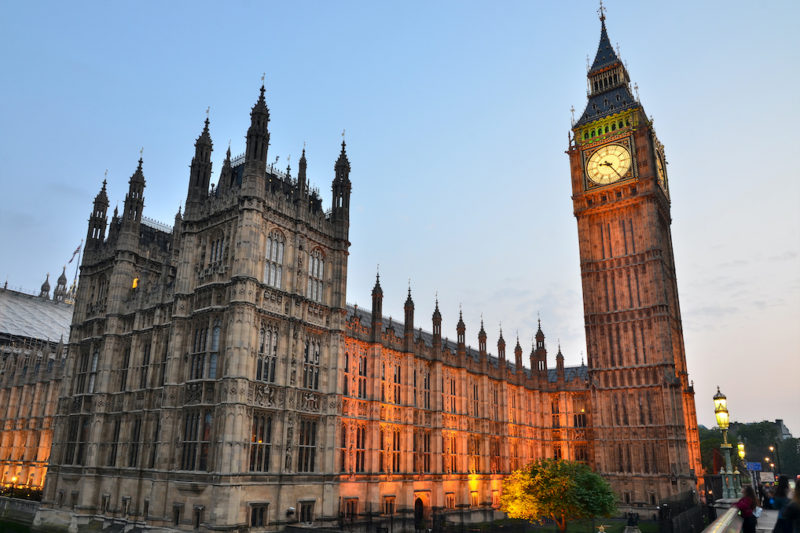Nestlé confirms ending Fairtrade KitKat deal after meeting cross party parliamentary group

Nestlé has confirmed that it intends to drop its decade-long cocoa sourcing deal with Fairtrade in favour of Rainforest Alliance, following a meeting with a cross parliamentary group of UK MPs who had urged the business to reconsider its plans, reports Neill Barston.
The virtual meeting had explored whether the multinational company might reconsider its proposals, which farmers operating in key markets in Ivory Coast would suffer considerable financial losses amid the global pandemic as a result of the move – which the firm says it will put in place mitigation measures.
According to Nestlé, its plans for cocoa sourcing relating to its KitKat brand are being carried out to align its production with an existing relationship fostered with Rainforest Alliance as part of its wider target for meeting its wider sustainability goals.
During the virtual meeting of the All Party Parliamentary Group for Fairtrade (APPG), MPs made clear they remained unconvinced by Nestle’s decision to stop sourcing on Fairtrade terms for their iconic KitKat brand, over fears that it would result in poorer incomes and conditions for some of the world’s lowest paid, instead urging them to reconsider the move and to remain Fairtrade.
As the MPs noted, Nestlé confirmed to them at the meeting that the move from Fairtrade to Rainforest Alliance accreditation will see Ivorian farmers paid a lower payment for their cocoa, from the Fairtrade Premium of $240 a tonne, to $180 a tonne, on top of the market price. As a result, Nestlé suggested in the short term other payments and projects would make up the difference, but the parliamentary group said there was was a lack of clarity over whether these payments and projects will still leave farmers with less money, and how long they will last beyond the next two years.
Although Nestlé argued that schemes would be in place to mitigate the impact to cocoa farmers, the business reportedly conceded to the group of MPs that some sugar farmers would be worse off under their decision to source UK beet sugar instead of sugar cane from overseas.
Confectionery Production approached Nestlé for comment on the case on whether the company would reconsider its proposals. A spokesperson for the business said: “We can’t make that commitment. After much thought, we believe it’s right for KitKat two-finger and four-finger to join our other products in working in collaboration with the Rainforest Alliance. This move will enable us to accelerate our work within the Nestlé Cocoa Plan and monitor and evaluate our progress more efficiently. What we can commit to is being transparent and accountable to those who share our commitment to fair and sustainable cocoa around the actions we are taking and the impact of the change once it is implemented.”
Parliamentary concern
Speaking on the APPG’s position, Labour MP Holly Lynch, co-chair of the APPG on Fairtrade, said: “Both Nestle and Fairtrade have benefited from their partnership over the years. We are concerned that Nestle’s decision to stop sourcing Fairtrade cocoa for KitKats will knock consumer confidence in the brand, which we are all keen to avoid. British shoppers have grown used to KitKats guaranteeing equity and prosperity for the producers who create the chocolate that we love.
“We are asking Nestle to think again, especially given the global economic uncertainty caused by the Coronavirus Pandemic. At the very least, we would like to see Nestle delay this process to safeguard the producers who have been integral to the company’s long-term success.”
In addition to concerns that farmers will be less well off financially, MPs of all parties expressed strong concern over the ability that farmers will have to decide on the use of funds. Under the Fairtrade system, farmers and their co-operatives have full control over how the $240 Fairtrade Premium is spent. However, Nestle told MPs that only one third of the new $180 payment will be under the full control of farmers. MPs believe that farmers should be able to decide how to spend money they have earnt from their sales.
Conservative MP Jason McCartney, co-chair of the APPG, added: “Nestle’s move is against the wishes of farmers who will be left with less money under their own control and without the clear commitments to future income that they have benefited from under Fairtrade. Nestle should think again. It also needs to be much more transparent about the detail of their new proposals”.
Furthermore, MPs also questioned the depth of the consultation process that Nestle ran with cocoa farmers before announcing their decision. Nestlé reportedly acknowledged that many farmers expressed ‘concern’ and ‘regret’ about their plan to end the sourcing of Fairtrade cocoa, but claimed that overall their decision to continue working with Nestle showed that they were happy with their relationship. However, it was noted that the company’s high buyer power and the farmers’ comparatively weak position to seek an alternative buyer raised a concern that farmers will not have been able to meaningfully query the decision.
The APPG plans to make further calls on Nestle to share a full multi-year financial breakdown allowing the detail to be properly understood, as well as greater clarity over the decision making powers that farmers and co-operatives will have under the proposed move. In addition, the APPG is also calling on Nestle to engage with sugar farmers affected and as a minimum, to provide additional financial support to farmers for the transition period.
